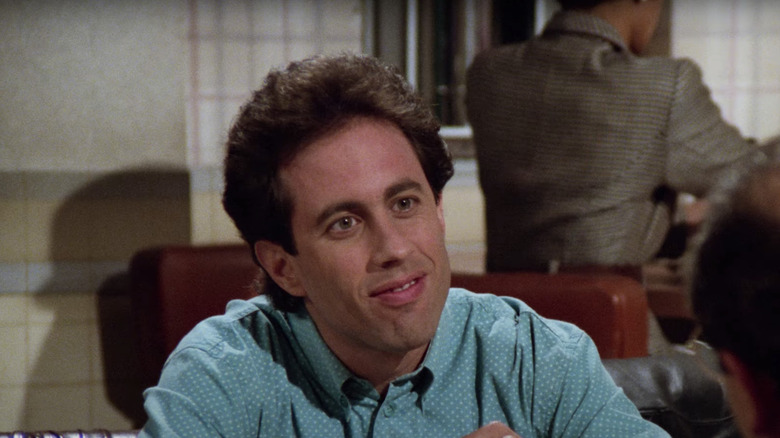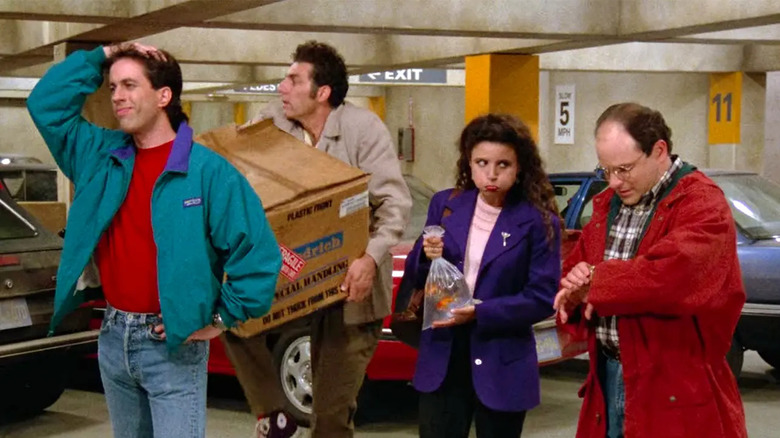The Seinfeld Crew Turned Down A Massive Payday To End The Show At Season 9
"Seinfeld" is one of the greatest and most influential sitcoms of all time. If you think of any tired, trite sitcom trope, I can guarantee you that not only did "Seinfeld" invent that trope, but they were the only show ever that did it well. Characters like George Costanza, Elaine Benes, and Cosmo Kramer are legendary in the world of television.
The ratings reflected the show's quality, and it was able to run for a strong nine seasons on NBC from 1989 to 1998. The show was so popular that it was buoying other show's ratings collaterally. And according to a New York Post piece, however, the show could have run even longer had they wanted to. The network wanted the show to continue so badly that they were willing to pay exorbitant amounts of money to make it happen.
Seinfeld was primarily the brainchild of two men: the eponymous Jerry Seinfeld and future "Curb Your Enthusiasm" star Larry David. The two were the driving force behind the show's creative ideas, and are largely credited with the show's greatness. David left the show after the seventh season to pursue other projects, while Seinfeld stayed on for the last two.
Many believe the show declined following David's departure, even though most would admit the show was still pretty good. With David out of the picture, Seinfeld's presence became even more vital. Seinfeld was offered a deal. If he would make a 10th season of the program, he'd be paid $5 million an episode. This was a huge increase from his rate in the ninth season, an already staggering $1 million an episode. Seinfeld, who believed the show had already run its course, turned down the huge payday.
They couldn't buy him
After more than a decade of standup comedy, Jerry Seinfeld finally managing to get "Seinfeld" made in 1998 was a turning point in his career. After years of toiling and touring, he was getting paid tons of money to become a household name. By the show's third season, it was the most-watched sitcom on television. He went from making $20,000 an episode to doubling that, to reaching $100,000 and eventually $1 million an episode. This, in addition to all the money from syndication and merchandise, made Seinfeld a very wealthy man.
It was perhaps because of this wealth that Seinfeld wasn't afraid to end "Seinfeld" on his own terms. Executive producer Alec Berg talked about this in a Variety piece.
"Jerry's always had such an amazing head on his shoulders, and he's never been in awe of any of it. He handles it all with dignity, and I think he just felt like this felt right to him. [The network] had offered to give him seven gazillion dollars and his own planet if he wanted to do another season. And he thought about it and said, 'The only reason to do another year would be money, and that would be a shame.'"
So Seinfeld stuck to his creative guns, and the show came to its end after its ninth season, leaving millions upon millions of dollars on the table. Seinfeld went on to other projects, and while they were less successful, they were at least what he actually wanted to do creatively. And no matter what, nobody can take away from those nine seasons of magic.

